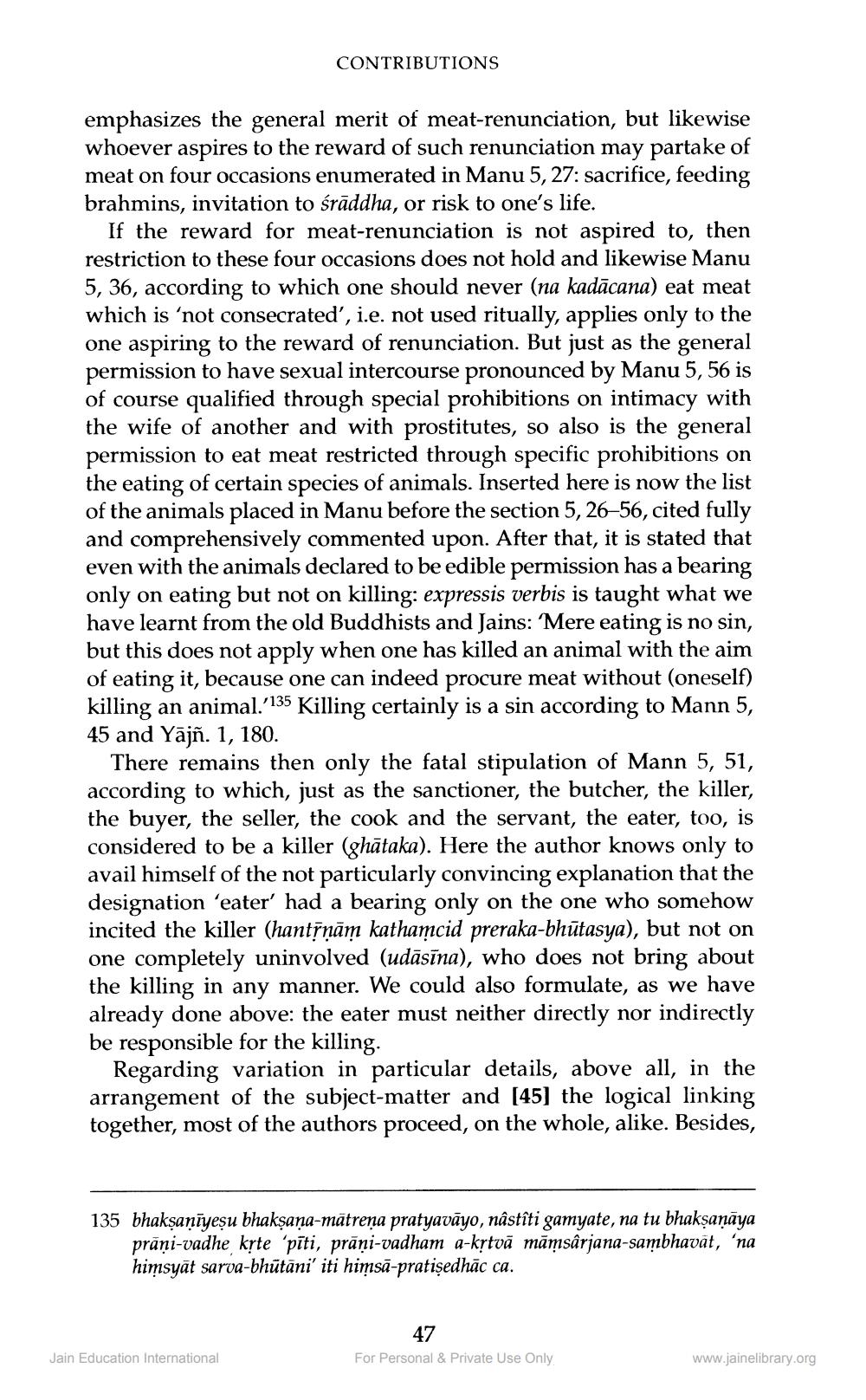________________
CONTRIBUTIONS
emphasizes the general merit of meat-renunciation, but likewise whoever aspires to the reward of such renunciation may partake of meat on four occasions enumerated in Manu 5, 27: sacrifice, feeding brahmins, invitation to śrāddha, or risk to one's life.
If the reward for meat-renunciation is not aspired to, then restriction to these four occasions does not hold and likewise Manu 5, 36, according to which one should never (na kadācana) eat meat which is ‘not consecrated', i.e. not used ritually, applies only to the one aspiring to the reward of renunciation. But just as the general permission to have sexual intercourse pronounced by Manu 5,56 is of course qualified through special prohibitions on intimacy with the wife of another and with prostitutes, so also is the general permission to eat meat restricted through specific prohibitions on the eating of certain species of animals. Inserted here is now the list of the animals placed in Manu before the section 5, 26–56, cited fully and comprehensively commented upon. After that, it is stated that even with the animals declared to be edible permission has a bearing only on eating but not on killing: expressis verbis is taught what we have learnt from the old Buddhists and Jains: Mere eating is no sin, but this does not apply when one has killed an animal with the aim of eating it, because one can indeed procure meat without (oneself) killing an animal.'135 Killing certainly is a sin according to Mann 5, 45 and Yājñ. 1, 180.
There remains then only the fatal stipulation of Mann 5, 51, according to which, just as the sanctioner, the butcher, the killer, the buyer, the seller, the cook and the servant, the eater, too, is considered to be a killer (ghātaka). Here the author knows only to avail himself of the not particularly convincing explanation that the designation ‘eater' had a bearing only on the one who somehow incited the killer (hantīņām kathamcid preraka-bhūtasya), but not on one completely uninvolved (udāsīna), who does not bring about the killing in any manner. We could also formulate, as we have already done above: the eater must neither directly nor indirectly be responsible for the killing.
Regarding variation in particular details, above all, in the arrangement of the subject matter and [45] the logical linking together, most of the authors proceed, on the whole, alike. Besides,
135 bhakṣaṇīyesu bhakşaņa-mātrena pratyavāyo, nâstîti gamyate, na tu bhakşaņāya
prāņi-vadhe krte 'pīti, prāņi-vadham a-kstvā māmsârjana-sambhavät, 'na himsyāt sarva-bhūtāni' iti himsā-pratişedhāc ca.
47 For Personal & Private Use Only
Jain Education International
www.jainelibrary.org




